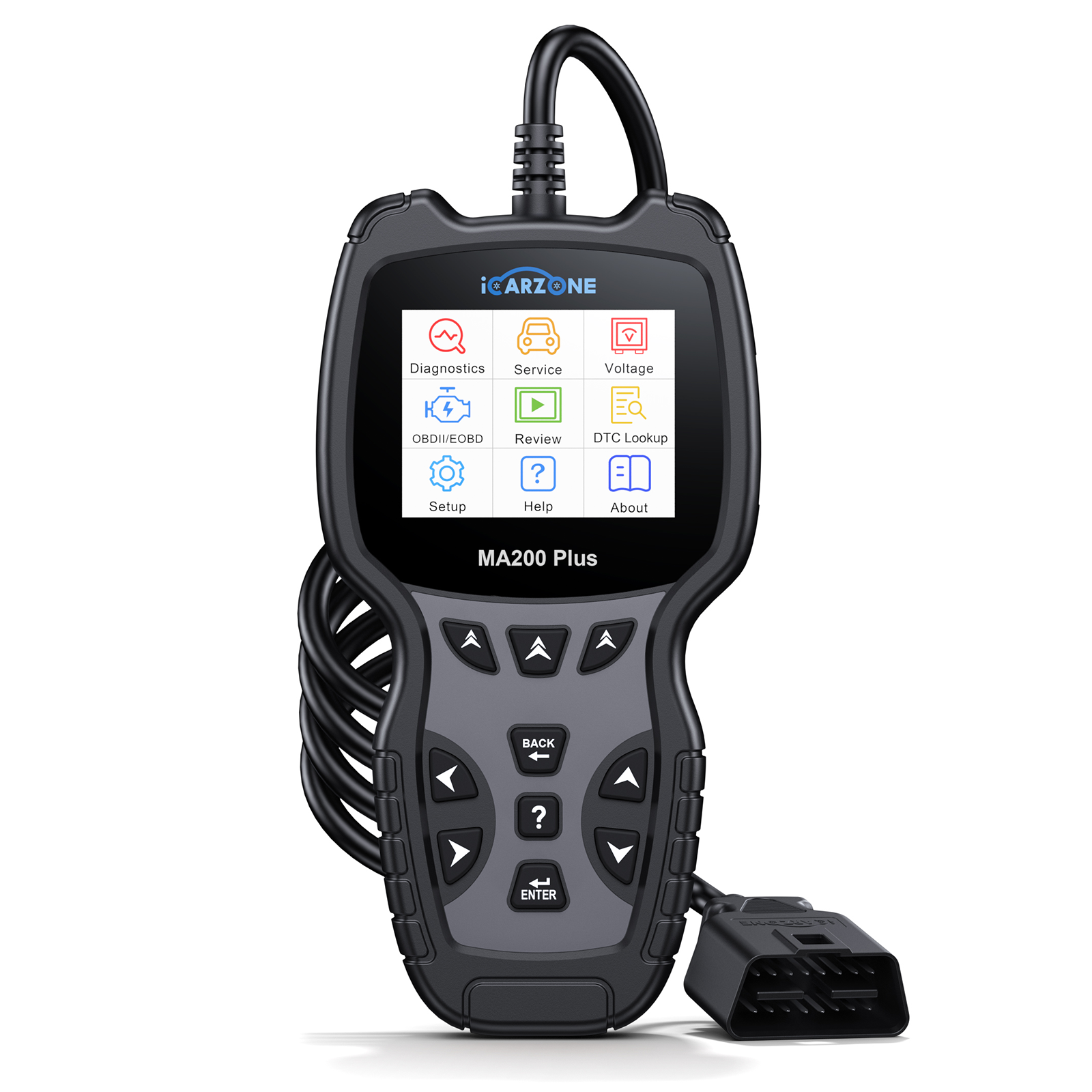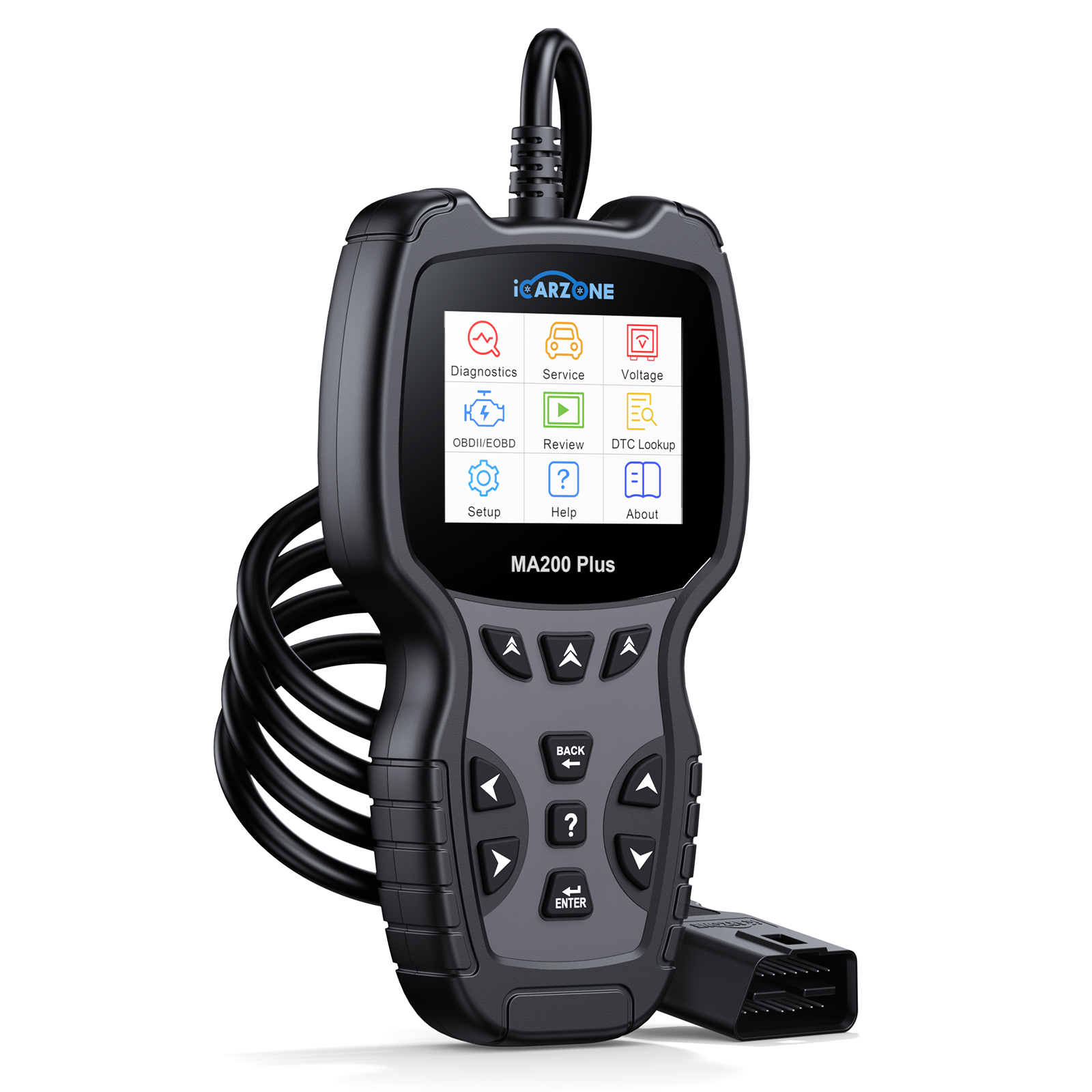P0100 Fix for 2012-2018 Ford Focus: MAF Sensor Issues Solved [DIY Guide]
![P0100 Fix for 2012-2018 Ford Focus: MAF Sensor Issues Solved [DIY Guide]](http://icarzone.com/cdn/shop/articles/31.png?crop=center&height=1370&v=1756428632&width=2000)
Summary: This guide helps 2012-2018 Ford Focus owners fix P0100 (MAF sensor circuit malfunction). Learn causes like sensor contamination, diagnose with iCarzone UR800, and perform DIY repairs to restore performance and fuel economy.
P0100: Fix MAF Sensor Issues in 2012-2018 Ford Focus
Solve rough idle, poor fuel economy & check engine light in your Focus. Learn step-by-step how to diagnose Mass Air Flow sensor problems with iCarzone UR800.
Fix Focus P0100 Today1. What is P0100 in Ford Focus?
P0100 is a diagnostic trouble code indicating a Mass Air Flow (MAF) sensor circuit malfunction in your Ford Focus. This critical sensor measures the amount of air entering the engine, helping the ECU adjust fuel delivery for optimal combustion.
Focus 2.0L Engine Specifics
In 2012-2018 Ford Focus models with the 2.0L Ti-VCT engine, the MAF sensor is located between the air filter box and throttle body. This code frequently appears between 40,000-70,000 miles due to the sensor's exposure to contaminants and electrical wear in Focus models.

2. Common Causes of P0100 in 2012-2018 Focus
Based on Focus owner reports and Ford service data, these are the most frequent causes of P0100 in 2012-2018 models:
- Contaminated MAF Sensor — Example: 2015 Focus with 62,000 miles developed P0100 after dusty road trip. Sensor wires were coated with oil/particles from a damaged air filter.
- Damaged Wiring Harness — Example: 2016 Focus showed P0100 after cold weather. Inspection revealed frayed wires where harness rubs against engine bay bracket (common Focus issue).
- Failed MAF Sensor — Example: 2014 Focus with 75,000 miles had internal sensor failure. Testing showed erratic voltage output outside Ford's 0.9-4.1V operating range.
- Loose Electrical Connections — Example: 2017 Focus P0100 traced to corroded MAF connector pins from engine bay moisture (common in Focus models with high humidity exposure).
- Air Intake Leaks — Example: 2013 Focus developed P0100 after air intake tube cracked near MAF sensor, causing incorrect air measurement.

3. Symptoms of P0100 in Ford Focus
Focus owners typically notice these specific symptoms when P0100 is present:
- Rough idle, especially noticeable when starting cold
- Check Engine Light illuminated solid (rarely flashes with this code)
- Reduced acceleration power—common complaint in Focus 2.0L models
- Increased fuel consumption (2-4 MPG drop reported by owners)
- Hesitation during low-speed acceleration (e.g., merging into traffic)
- Specific to Focus: Engine may stall when coming to a stop
4. How to Diagnose P0100 with UR800
Follow this Focus-specific process using the iCarzone UR800 to pinpoint P0100 causes:
| Step | Action | Tools Needed | Focus-Specific Checks |
|---|---|---|---|
| 1 | Scan & Verify | iCarzone UR800 | Confirm P0100; check live data for MAF voltage (should read 0.9-4.1V during operation) |
| 2 | Inspect Connections | Electrical contact cleaner | Check Focus MAF connector (C177) for corrosion—common failure point in 2012-2014 models |
| 3 | Visual Inspection | Flashlight, mirror | Examine sensor wires for damage; check intake tube for cracks (Focus 2.0L weak point) |
| 4 | Circuit Test | Multimeter | Verify power (5V) and ground at connector; check for continuity to PCM pin C220-47 |
| 5 | Sensor Testing | iCarzone UR800 | Perform MAF sensor response test—Focus should show 2.5-3.5 g/s at idle |
Example: A 2015 Focus with P0100 showed 0.3V constant reading on UR800 scan. Visual inspection found mouse nest debris on sensor wires. Cleaning resolved the code temporarily, but a new sensor was needed for permanent fix—common in Focus models parked outdoors.
Diagnose Focus with UR8005. DIY Fixes for Focus P0100
- Clean MAF Sensor: Use CRC MAF cleaner on sensor wires—never touch wires with fingers. Let dry completely before reinstalling.
- Repair Wiring: Fix damaged harness with Ford-approved splice kit (WPT-1249) where Focus harness rubs against chassis.
- Replace MAF Sensor: Install Motorcraft DX-2997 (Focus-specific OEM part) — matches 2.0L Ti-VCT calibration.
- Fix Intake Leaks: Replace cracked intake tube with Ford HC3Z-9B659-A; check all vacuum hoses.
- Clean Connections: Use electrical contact cleaner on MAF connector and apply dielectric grease to prevent corrosion.
Focus Optimization Tips
- After repairs, use iCarzone UR800 to perform "PCM Adaptation Reset" for Focus ECU recalibration.
- Always replace air filter when servicing MAF sensor—Ford recommends Motorcraft FA-1887 for 2.0L Focus.
- Add protective loom to wiring harness where it contacts metal brackets (Focus 2012-2016 weak point).
6. Repair Costs & Safety Tips
- MAF Sensor Cleaner: $8–$15 (DIY cleaning solution)
- OEM MAF Sensor: $85–$150 (Motorcraft for Focus)
- Wiring Repair Kit: $15–$30 (Ford-approved splice kit)
- Intake Tube Replacement: $60–$120 (Ford OEM part)
- Professional Diagnosis: $80–$120 (Ford dealership rate)
Safety Precautions
- Disconnect Focus battery negative terminal before disconnecting MAF connector to prevent electrical damage.
- Allow engine to cool completely—Focus intake components get very hot during operation.
- Use torque wrench when reinstalling MAF sensor (8–10 ft-lbs) to avoid cracking plastic housing.
- Clear codes with iCarzone UR800 after repairs and perform 15-minute test drive to confirm fix.
7. Preventing P0100 in Focus 2.0L
Avoid P0100 in your Focus with these proactive steps:
- Replace air filter every 15,000 miles (sooner if driving in dusty conditions) to protect MAF sensor.
- Inspect MAF sensor connections quarterly—apply dielectric grease in humid climates.
- Use the iCarzone UR800 monthly to check for pending MAF sensor codes before they trigger the Check Engine Light.
- Clean MAF sensor annually with dedicated MAF cleaner to prevent contamination buildup.
- Check for TSBs—Ford issued TSB 14-0058 for 2012-2014 Focus models with recurring P0100 codes.
8. Focus Owner FAQs About P0100
Yes, but performance and fuel economy will suffer. Extended driving may cause catalytic converter damage in Focus models.
The 2.0L Ti-VCT engine's MAF sensor is positioned close to the air filter, making it more susceptible to contamination compared to previous designs.
Often yes for contamination issues, but if the sensor is electrically failed or wiring is damaged, replacement will be necessary.
UR800 provides Ford-specific live data, MAF voltage readings, and reset functions critical for properly diagnosing and repairing P0100 in Focus models.
9. Summary & Next Steps
P0100 (MAF sensor circuit malfunction) is a common issue in 2012-2018 Ford Focus models, typically caused by sensor contamination, wiring problems, or failed components. Using the iCarzone UR800, you can accurately diagnose the root cause—often a dirty or failed MAF sensor in Focus 2.0L engines. Prompt repairs restore performance, improve fuel economy, and prevent further engine damage.
Fix Focus P0100 with iCarzone UR800
The iCarzone UR800 is optimized for Ford diagnostics, featuring Focus-specific MAF sensor tests and reset functions to resolve P0100 quickly. Perfect for DIY Focus owners.
Get UR800 for Focus Now









